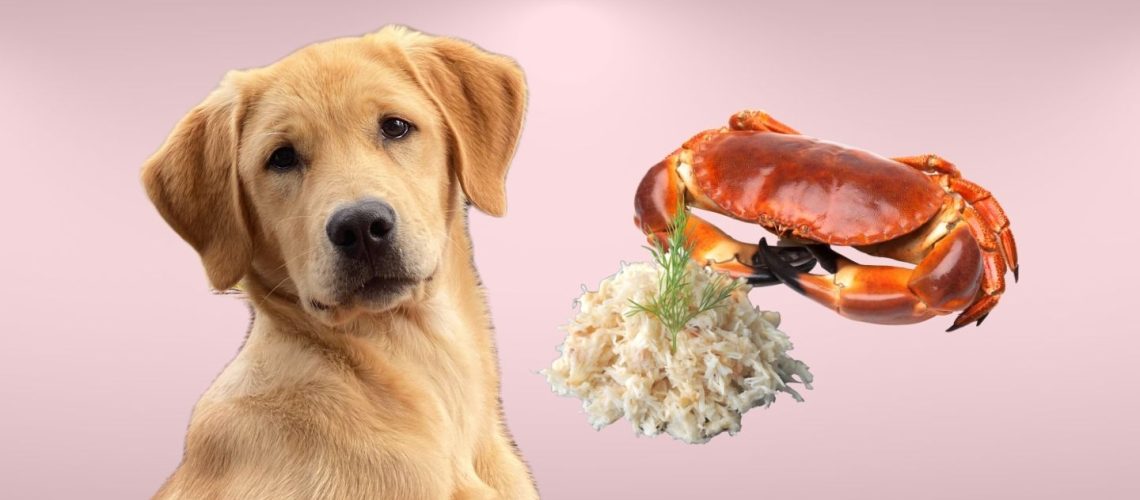The short answer is yes, dogs can eat crab in moderation. However, it is important to feed them crab in moderation and to remove the shell before giving it to your dog. Crab meat is a healthy and tasty treat for dogs, as long as it is given to them in moderation. Crab is a good source of protein and contains many essential vitamins like B12 and minerals like Zinc that can be beneficial for your dog's health.
What is Crab?
Crab is a crustacean found in oceans, seas, and freshwater habitats. There are many different species of crab, but the most commonly consumed by humans (and dogs) are Dungeness, blue, and king crabs.
Nutritional Value of Crab
Crab is a low-fat, high-protein food that is rich in essential vitamins and minerals. It is a good source of vitamin B12, zinc, phosphorus, selenium, copper, and omega-3 fatty acids.
Benefits of Crab for Dogs
Protein Source
Crab is an excellent source of high-quality protein. Protein is essential for dogs' growth, muscle development, and maintaining a healthy immune system.
Essential Vitamins and Minerals
Crab contains essential vitamins and minerals that contribute to your dog's overall health, such as vitamin B12, zinc, phosphorus, selenium, and copper.
Omega-3 Fatty Acids
Crab is also a source of omega-3 fatty acids, which have anti-inflammatory properties and can help promote a healthy coat, skin, and joints.
Joint Health
Some studies have suggested that the shell of certain crabs, when processed into a supplement, can help support joint health in dogs. However, this should not be confused with feeding your dog whole crab shells, which is not recommended.
Preparing Crab for Dogs
Choosing the Right Crab
When selecting crab for your dog, choose fresh or frozen crab that has not been seasoned or marinated. Avoid imitation crab or crab products with added fillers or preservatives.
Cooking Methods
Always cook crab before feeding it to your dog, as raw crab may contain harmful parasites and bacteria. Steaming, boiling, or baking are the recommended cooking methods.
Removing the Shell
Remove the sharp shell and any small bones before feeding your dog crab meat. Crab shells are not digestible and can cause choking or gastrointestinal issues if ingested.
Avoiding Seasoning and Spices
Do not add any salt, spices, or seasoning to the crab when preparing it for your dog, as these can be harmful or cause digestive issues.
Potential Side Effects of Feeding Crab to Dogs
Allergic Reactions
Some dogs may have an allergic reaction to crab or other shellfish. Monitor your dog for any signs of an allergic reaction, such as itching, swelling, or difficulty breathing.
Choking Hazards
Crab shells and small bones can pose a choking hazard for dogs, so it is important to remove them before feeding your dog crab meat.
Gastrointestinal Issues
Feeding too much crab or crab shells can cause gastrointestinal upset, such as diarrhea or vomiting, in dogs.
High Cholesterol and Sodium
Crab meat is high in cholesterol and sodium, which may not be suitable for dogs with certain health conditions, such as heart disease or hypertension.
Shell Fragments
Even after removing the shell, there may still be small fragments in the meat. Monitor your dog when feeding them crab and be cautious of any potential choking hazards.
Alternatives to Crab for Dogs
Other Seafood Options
There are other seafood options that can provide similar nutritional benefits for your dog, such as salmon or whitefish.
Protein-Rich Treats
If you are looking for a high-protein treat for your dog, consider options like chicken, turkey, or lean beef.
Fruits and Vegetables
There are many fruits and vegetables, such as blueberries or sweet potatoes, which can provide additional nutrients and antioxidants for your dog.
Consult Your Veterinarian
When to Seek Professional Advice
Always consult with your veterinarian before introducing new foods, like crab, to your dog's diet. Your veterinarian can advise on appropriate portion sizes and potential health concerns.
Monitoring Your Dog's Health
Keep an eye on your dog's health when introducing new foods and contact your veterinarian if you notice any changes or concerns.
Final Thoughts
In conclusion, dogs can safely eat crab meat in moderation, as long as the shell is removed and the meat is cooked and unseasoned. As with any new food, it is always a good idea to consult with your veterinarian before introducing it to your dog's diet. The importance of a balanced diet and gradually introducing new foods will help ensure your dog stays happy and healthy.









